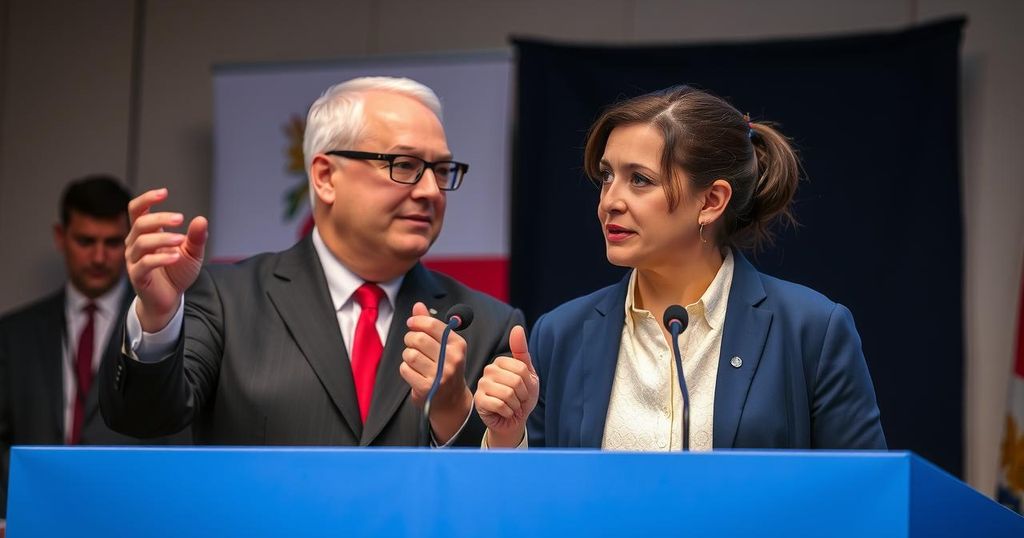Croatia’s Presidential Election: Incumbent Faces Off Against Ruling Party Candidate

Croatia’s presidential election features incumbent Zoran Milanović, a critic of Western support for Ukraine, running against Dragan Primorac, with a runoff likely if no candidate receives over 50% of the vote. The election is pivotal for Croatia’s geopolitical ties amid internal challenges, including corruption.
Croatia is holding presidential elections with incumbent President Zoran Milanović, known for his critical stance on Western military support for Ukraine, seeking reelection. While Milanović, a populist politician often compared to Donald Trump for his confrontational style, is the most popular figure in Croatia, he faces seven challengers, including Dragan Primorac from the ruling Croatian Democratic Union. If no candidate secures over 50% of the votes in the first round on Sunday, the two front-runners will proceed to a runoff scheduled for January 12.
Milanović’s presidency, although largely ceremonial, encompasses significant powers, including military leadership. He has been vocally critical of both NATO and European Union support for Ukraine, advocating for Croatia to remain neutral amid global conflicts. Further complicating the electoral landscape is the recent corruption scandal involving Croatia’s health minister, which has impacted Primorac’s campaign. Primorac positions himself as a candidate leading Croatia towards the West, emphasizing unity and stability, whereas Milanović’s approach has raised concerns about the country’s international relations.
Today’s election marks the third major vote within Croatia this year, following parliamentary elections in April and European Parliament elections in June. As both Milanović and Primorac cast their votes, their contrasting visions for the future of Croatia become increasingly apparent.
In conclusion, the outcome of Croatia’s presidential election will be pivotal in determining the nation’s geopolitical stance and its engagement within the EU and NATO. The distinct electoral strategies of Milanović and Primorac highlight the diverse political landscape of Croatia as it faces challenges both domestically and internationally.
The Croatian presidential election is a significant event that reflects the country’s ongoing political dynamics, particularly in relation to international alliances like NATO and the EU. President Zoran Milanović, serving since 2020, has generated controversy due to his critical views on foreign military interventions. In this electoral context, the candidates’ varying positions on issues such as alignment with Western powers versus neutrality reveal underlying tensions in Croatian politics, especially amid the backdrop of the Ukraine conflict and national governance challenges. Primorac’s candidacy comes at a time when corruption and public disillusionment are pressing issues, setting the stage for a contest not just about leadership but critical national narratives.
The Croatian presidential elections are positioned as a referendum on the future direction of the nation. With Zoran Milanović’s contentious views on international relations juxtaposed against Dragan Primorac’s calls for alignment with the West, voters will face a critical decision. This election, marked by themes of both unity and division within the political arena, will ultimately shape Croatia’s engagement with global powers and address pressing domestic concerns.
Original Source: www.voanews.com








